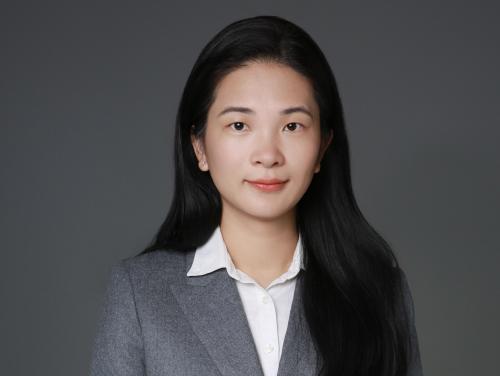Faculty

Dr. Lili Wang, IEEE Senior Member, joined Southern University of Science and Technology in May 2024 as an Associate Professor, an independent Principal Investigator, and a Ph.D. advisor. She earned her Bachelor's and Master's degrees in Engineering from Zhejiang University in 2011 and 2014, respectively, and her Ph.D. in Engineering and Applied Science from Yale University in December 2020. She previously worked at Purdue University, where she was awarded the Lilian Gilbreth Postdoctoral Fellowship. Throughout her career, Dr. Wang has received several honors, including the 2023 CPS Rising Star Award, the Henry Prentiss Becton Graduate Award from Yale University, and the Zhang Siying Outstanding Paper Award from the Chinese Control and Decision Conference (CCDC). Her research has been published in top journals and conferences in the field of control, including the IEEE Transactions on Automatic Control (TAC), Automatica, IEEE Transactions on Cybernetics (IEEE TCYB), Systems & Control Letters (SCL), as well as the Conference on Decision and Control (CDC) and the American Control Conference (ACC). Dr. Wang is currently establishing the COL-LABORATORY, a research team focused on control systems for intelligent sensor networks based on control, optimization, and learning.
Education Background
2014-2020 Yale University PhD Engineering and applied science
2011-2014 Zhejiang University Master Control theory and control engineering
2007-2011 Zhejiang University Bachelor Automation
Working Experience
2024.05-now Southern University of Science and Technology, Associate Professor
2023.03-2024.05 Purdue University, Postdoc
2021.09-2023.01 University of California Irvine, Postdoc
2020.09-2021.08 Boston University, Postdoc
Research Area
1. Social dynamics
2. distributed estimation and calculation
3. distributed control
4. formation control for multi-agent systems
5. distributed learning and its applications
Publications
· L. Wang*, Ji Liu, Brian D. O. Anderson, and A. Stephen Morse. Split-spectrum based distributed state estimation for linear systems. Automatica, volume 161, page 111421, 2024. (Regular)
· F. Liu, L. Wang*, D. Fullmer, and A. S. Morse. Distributed feedback control of multi-channel linear systems. IEEE Transactions on Automatic Control, volume 68, pages 7164-7178,2023. (Regular)
· L. Wang*, Ji Liu, and A. Stephen Morse. A hybrid observer for estimating the state of a distributed linear system. Automatica, volume 146, page 110633, 2022. (Regular)
· M. Ye, J. Liu, L. Wang, B. D. O. Anderson, and M. Cao. Consensus and disagreement of heterogeneous belief systems in influence networks. IEEE Transactions on Automatic Control, pages 4679 – 4694, 2019. (Regular)
· L. Wang* and A. S. Morse. A distributed observer for a time-invariant linear system. IEEE Transactions on Automatic Control, volume 63, pages 2123–2130, 2018. (Regular)
· S. Mou, Z. Lin, L. Wang, D. Fullmer, and A. S. Morse. A distributed algorithm for efficiently solving linear equations and its applications. Systems & Control Letters, volume 91, pages 21–27, 2016. (Regular)
· Z. Lin, L. Wang, Z. Han, and M. Fu. A graph Laplacian approach to coordinate-free formation stabilization for directed networks. IEEE Transactions on Automatic Control, volume 61, pages 1269–1280, 2016(Regular)
· Z. Lin, L. Wang, Z. Chen, Z. Han, and M. Fu. Necessary and sufficient graphical conditions for affine formation control. IEEE Transactions on Automatic Control, volume 61, pages 2877 –2891, 2016. (Regular)
· Z. Han, L. Wang, Z. Lin, and R. Zheng. Formation control with size scaling via a complex Laplacian based approach. IEEE Transactions on Cybernetics, volume 46, pages 2348–2359, Oct 2016. (Regular)
· Z. Lin, L. Wang, Z. Han, and M. Fu. Distributed formation control of multi-agent systems using complex Laplacian. IEEE Transactions on Automatic Control, volume 59, pages 1765–1777, 2014 (Regular)
Awards
2024 IEEE Senior Member
2023 The Lillian Gilbreth Fellowships (Purdue University)
2023 The 2023 CPS Rising Star(Virginia University)
2019 The Henry Prentiss Becton Graduate Prize (Boston university)
2012 Zhang Siying Outstanding Paper Award(CCDC)


